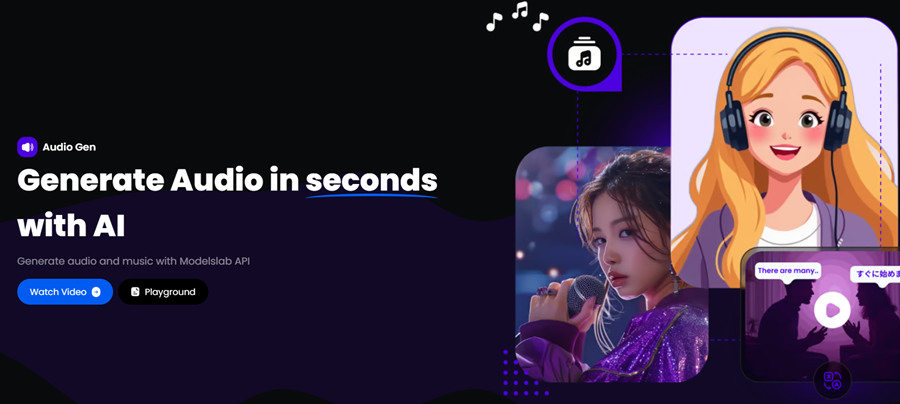Top 10 Benefits of Real-Time Voice Cloning
Written on . Posted in Audio Generation.
Real-time voice cloning is changing various industries by creating speech that closely mimics human voices. It improves content, making interactions more engaging and personalized.
From entertainment to education, this technology is reshaping how we communicate, but it also raises ethical considerations. Below, we’ll explore how real-time voice cloning works and the top 10 benefits it brings to tech enthusiasts, content creators, educators, and marketers.
How Real-Time Voice Cloning Works
At its core, real-time voice cloning relies on deep learning algorithms. Here’s how it operates:
Data Collection: High-quality speech samples from the target voice are collected.
Algorithmic Training: Machine learning models analyze the patterns, intonation, and tone of the voice.
Real-Time Generation: Once the model is created, it can produce speech instantly, transforming text into voice outputs that are nearly indistinguishable from the original voice.
With this foundation, let’s dive into the key benefits of real-time voice cloning.
Read about AI Dubbing and Its use in Cinema!
1. Enhanced Personalization
Real-time voice cloning enables businesses and individuals to deliver highly personalized experiences. Imagine virtual assistants speaking in your voice, or a game character reacting in real-time with a unique tone tailored just for you. This heightened level of personalization brings users closer to their technology, making interactions more intimate and human-like.
2. Improved Accessibility
For people with speech impairments, real-time voice cloning offers a way to communicate using a custom synthetic voice that resembles their own. This gives them the ability to maintain their identity and express themselves more naturally in their everyday interactions.
3. Efficient Content Creation
Whether it's for podcasts, audiobooks, or video content, real-time voice cloning speeds up the production process. Content creators can clone their voice or a preferred narrator’s voice and use it to produce high-quality audio in a fraction of the time it would take to record manually.
4. Cost-Effective Voiceover Solutions
Hiring voice actors or re-recording audio can be costly and time-consuming. With voice cloning, companies can generate realistic voiceovers at scale without the need for continuous manual input, making it a cost-effective solution for businesses across industries like marketing, film, and gaming.
5. Multilingual Capabilities
Real-time voice cloning supports multiple languages, making it a game-changer for global communication. You can clone a voice in one language and seamlessly replicate it in another, enhancing language learning tools, translation services, and multilingual customer service operations.
6. Consistency Across Platforms
When using human voice actors, maintaining consistency across various media formats and long projects can be a challenge. Real-time voice cloning ensures that the same voice sounds consistent across different applications, from training videos to virtual assistants, even when updates are needed months later.
7. Scalable Customer Service
Virtual assistants and chatbots enhanced with real-time voice cloning can interact with customers more naturally, improving the overall user experience. By mimicking a familiar voice, brands can offer personalized, scalable customer service without needing human representatives for every interaction.
8. Voice Banking for Terminally Ill Patients
For individuals at risk of losing their voice due to illness, voice cloning offers a unique solution. By storing their voice while they are still able to speak, these individuals can preserve a sense of identity and communicate with their loved ones even after losing their ability to speak.
9. Enhanced Gaming and Entertainment Experiences
Real-time voice cloning can significantly enhance gaming experiences by creating dynamic and lifelike character voices that react in real time. In entertainment, it allows actors to replicate their voices across multiple roles, or even bring historical figures or deceased actors back to life in new media.
10. Security and Privacy Protection
Voice cloning technology can also be applied to security sectors, where it enables secure identity verification through voice. This can be used for access control systems, where a cloned voice serves as an additional layer of protection, reducing the risk of identity fraud.
Ethical Considerations
As with any advanced technology, there are concerns about misuse. Real-time voice cloning can potentially be used for impersonation or fraud. To address this, ethical standards and regulations must be implemented, such as obtaining consent from individuals before their voice is cloned and ensuring transparency when a cloned voice is being used in communications.
Conclusion
Real-time voice cloning presents a wide range of benefits, from enhancing personalization to improving accessibility and cutting costs. As this technology continues to evolve, it’s vital to balance its potential with ethical safeguards, ensuring that its advantages are used responsibly across industries.

Interested in learning how real-time voice cloning can benefit your business or creative project? Explore the Voice cloning by ModelsLab!
